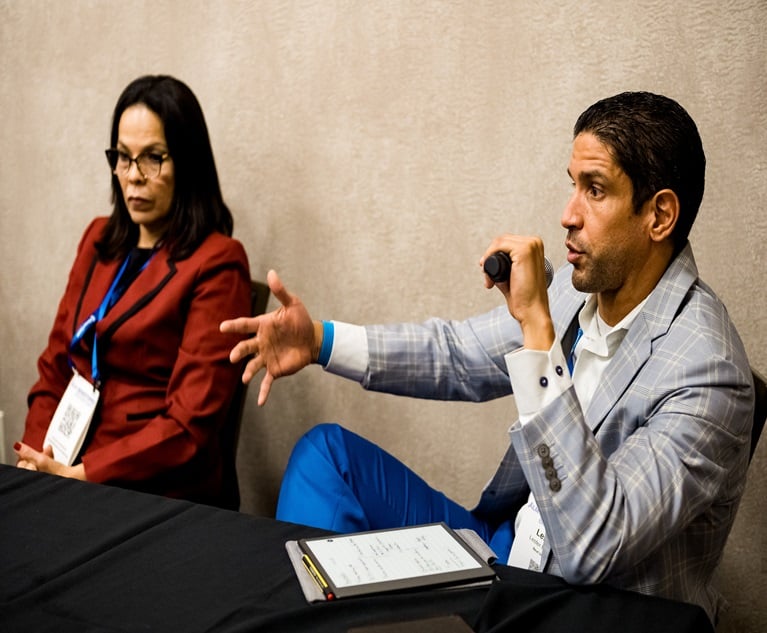I met a financial advisor about two years ago. Recently, hecontacted me by e-mail out of the blue. He was struggling in thefirst year of his practice and felt if he didn't get help fast, hewould fail. After a quick search about “how to be better atnetworking,” he found me.
|We chatted on the phone for a while. He read my book. Listenedto my audio. And I spent some time with him on the phone over a twomonth period.
|As it turned out, he did in fact fail at being a financialadvisor. (Clearly, I'm not very good.)
|He emerged in another sales role outside of financial services:salary, partial commission, the whole thing. He was invited to thelaunch of a networking group which seemed like a good opportunityfor him. The attendees were there “by invitation only” and therewas nobody else in the group that sold his products and services.In fact, the group was made up of successful business owners andservice providers that were great at networking.
|He showed up to the event early and left before it began. Itsimply wasn't for him. When he was asked about it later, he said hedidn't think anyone in the group could help him.
|After all the time he spent learning how to network, the guynever learned how to network.
|How you develop and master networking
|In boxing, you could try to improve your left jab by watchingvideos of Larry Holmes. But you get so much more out of trying toapply what you've learned by going to the gym and throwing thatleft at the heavy bag under the watchful eye of a trainer. You'llmaster that punch through repetition, feedback, and morerepetition.
|That's how you develop and improve any skill—repetition,feedback, and more repetition.
|Networking is about learning and helping others connect. Ifyou're successful, those you help will help you right back—that'snetworking!
|Outside of throwing more shoulder into your jab, here are ninebasic approaches to help you improve your networking skills. Thatis, if you're willing to work the bag.
||
Find the right event
|First and foremost, you don't need to go to events (cocktailparties, chamber mixers, fundraisers, association meetings,business card exchanges, golf outings, conferences or trade shows)to be an effective networker. You can make calls and send emails toclients and referral sources you already know. But if your goal isto get better at networking, you must find an event that alignswith the people you like and the business you're looking to do.
|Related: 7 ways you can promote socialreferrals
||
Dare to be different
|Financial advisors are a dime a dozen! Not really, but that'sthe perception of others that attend networking events. Think aboutit. How many financial advisors show up to monthly chamber mixers?Exactly! So find a way of differentiating yourself. Become knownfor one area of expertise that you're passionate about—long-termcare is a great example.
|Focus on a target market that's interesting and distinctive. Getinvolved as a board member. Head-up a committee. Run seminars. Makeit your business to introduce those you like to others you like—bea connector! Be the first to sign up for events and fundraisers.The best ways of differentiating yourself are to be great at whatyou do, passionate, reliable, genuinely interested in helpingothers, and to get involved.
||
Introduce yourself
|In amateur boxing, you get points for being the first to throwpunches. “Firing first” sets the tone, develops momentum, andbuilds your confidence. So, fire first! Be the first to offer anintroduction and show others that your intention is to meet peopleand help them. Once you get going, you may find others clamoring tointroduce themselves to you!
||
Ask great questions
|Let's get back to introducing yourself for a moment. Often, thething that prevents people from introducing themselves is notknowing what to say next. It sounds basic, I know, but it's true.This is where asking great questions comes in!
|So what kind of work do you do? How did you learn of this event?Do you know anyone here? Are you a first timer here? How are youdifferent from others in your profession? How do you get most ofyour business? What does a typical prospect look like for you? Howabout a typical client? Who is in the best position to refer you?If I were to meet someone at this event that you should meet, howwould I know? Outside of work and attending events, what do you dofor fun? What can I do to help you? (Only ask this last question ifyou really like them!)
|These should be enough to get you started. If you're lucky,you'll be asked the same questions right back! “How aboutyourself?”
||
Talk about your business
|Yes, this is elevator speech time. But keep what you have to sayabout your work short, sweet, and to the point. Stay focused onwhat you do, not necessarily how you do it. Also,focus on the who, as in who you want to meet. Again, tryto stay away from the how; otherwise you'll get into details thatmay bore others. If those you meet ask specific questions,certainly give specific answers, but you want to be informativewhile keeping the conversation out of snooze-ville.
|Related: Insurers should be selling relationships, notpolicies
||
Make it fun
|OK, you must have fun or at least try to have fun. One way tomake your conversations fun is to talk about fun things. Obvious, Iknow. As a boxer, I find myself approaching those at events thatseem active and fit. This way, I know I have a common bond whendiscussing sports, fitness, and my love for boxing. I'm just asexcited learning about how others stay active and keep inshape.
|As you go to events, see if you can find people that have aninterest in the same activity, hobby, or even television show(especially when there's a season or series finale!) as you. Ofcourse, you may need to find a hobby first.
||
Discuss next steps
|Is there a reason to follow up and stay in touch? If so, discussit. “So how do you see us potentially learning more and helpingeach other?”
|Take the initiative to exchange business cards and make apromise to follow up or follow through on that promise. Maybe youneed to schedule a follow up meeting.
|Related: 5 ways social media can keep insurance agents infront of prospects, clients
|Connect on LinkedIn. Whatever it is, you be the one to handleit, never rely on the other person.
|And do it in the next 24 hours or that business card will bestacked with the others on your desk.
||
Know when to bail
|You won't have an easy time talking to everyone you meet.Sometimes you just don't click with someone you've met. No bigdeal; it happens to everybody. Ask some basic questions about theirprofession and interests and if you're not feeling the love in acouple of minutes, say your goodbyes and find someone else to talkto. Keep in mind, if you don't feel you click with them, they don'tfeel like they click with you either. So again, say your goodbyesand bail: “Very nice to meet you. Good luck today and I'll see youagain soon!”
|That's pretty much it! Easy, right? Now, here's the heavy bagpart.
||Review your performance
|You must reflect on the event after you get home or back to theoffice. How did it go? How could it have gone better? Did you“sell” rather than “network”? Did you speak to everyone you wantedto? Did you forget anyone's name? Did you say anything stupid? Didyou forget to collect someone's business card? Did you do a goodenough job explaining what you do and who you're looking to meet?Did you have fun?
|Related: How to successfully follow up withanyone
|Think about all the ways you'll do better the next time. Maybeeven write some notes as reminders, plan for your next event andregister for it now if possible—get it in your calendar.
|And when you attend the next time, focus on the areas that youthink you want to improve. You may want to get better atintroducing yourself, remembering names, asking to exchangebusiness cards, asking questions, following up, and so on.
|Go through this exercise every time you attend an event andyou'll get more effective while building your confidence – not tomention your business. If you can, get feedback from others thatyou're getting to know at the event about how you're coming acrossand ways you might improve.
|And you will.
Want to continue reading?
Become a Free PropertyCasualty360 Digital Reader
Your access to unlimited PropertyCasualty360 content isn’t changing.
Once you are an ALM digital member, you’ll receive:
- All PropertyCasualty360.com news coverage, best practices, and in-depth analysis.
- Educational webcasts, resources from industry leaders, and informative newsletters.
- Other award-winning websites including BenefitsPRO.com and ThinkAdvisor.com.
Already have an account? Sign In
© 2024 ALM Global, LLC, All Rights Reserved. Request academic re-use from www.copyright.com. All other uses, submit a request to [email protected]. For more information visit Asset & Logo Licensing.









